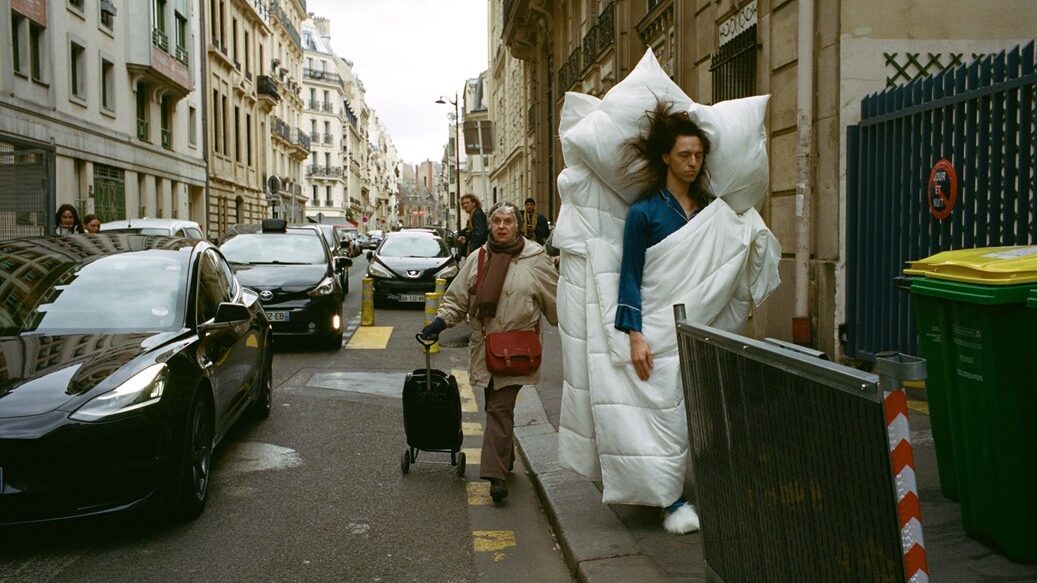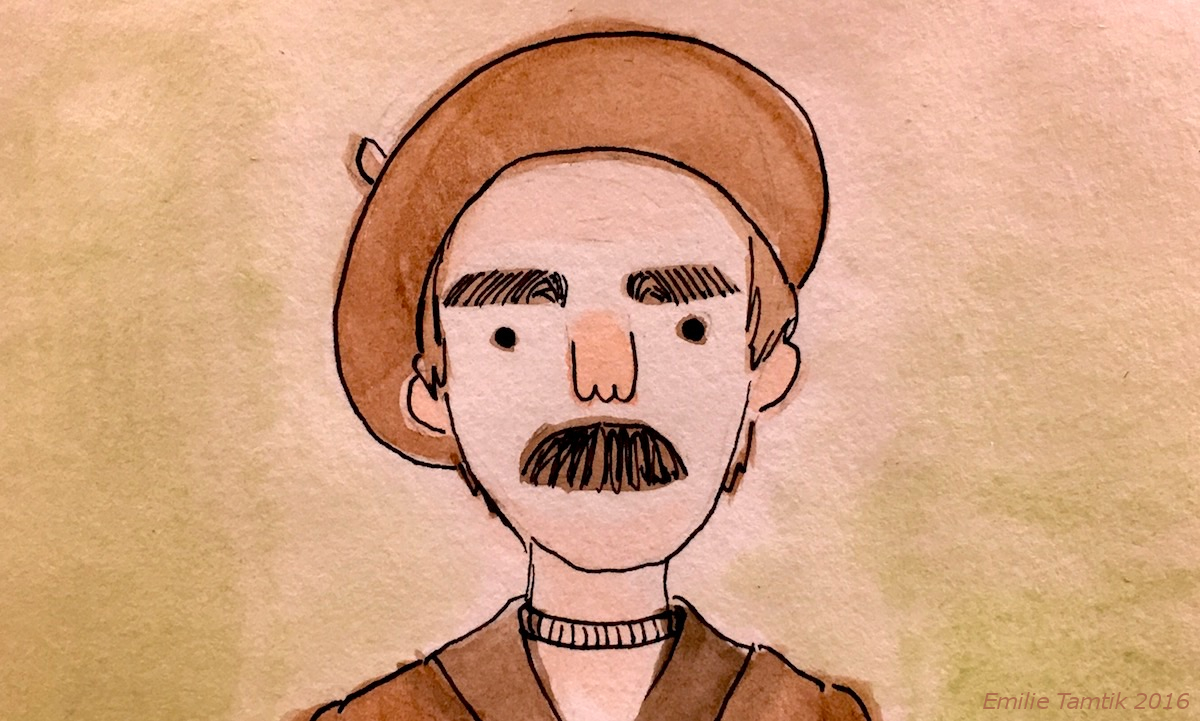Through bizarre displays of performance art and obscene lyricism, Cash consistently offers hyper-aware critiques of celebrity culture—mainly that it dwells too much on superficiality and conformity. Provoking outrage is his trademark.
Though he released his first album Euroz Dollaz Yeniz in 2013, Cash gained widespread notoriety in 2016 following the music video release for his single “Winaloto.” In the video, we see Cash's borderline perverse, yet beautifully poeticized, dedication to all things taboo. The New Musical Express accordingly dubbed it the “most unsettling music video of all time.” Cash revels in situations where others find discomfort.
Part of Cash's appeal is his extraordinary propensity for irony. Through thought-provoking performances in music, fashion, and art, Cash forces us to reconsider the norms of celebrity culture—especially those that promote the exuberant lifestyles that many rappers typically embrace. “I'm here to change stereotypes and shine upon different sides of the spectrum on how a rapper [should] be,” said Cash in an interview with Schön! Magazine.
He accomplishes this by placing irony at centre stage. Consider, for instance, Cash's seemingly innocuous stage name. Knowing that it serves as the first point of contact between the world and himself, Cash skillfully wields his stage name as a subversive, ironic tool. The carefully crafted pseudonym doubles as a covert critique, inviting us to critically reflect on the music industry's faults. “…It all started with a joke that I made about how some rappers are very materialistic. They are into their diamonds, their money, their phones. I have a Yen, Euro and Dollar sign in my name [but] I come from a very poor background and in some ways that makes me anti-materialistic…” said Cash. Irony allows him to operate as a double agent of sorts. Though he is often commended as an innovator of the music industry, his use of irony provides the façade of innocent creativity, allowing him to critique the industry all the same.
Cash's upbringing may have influenced his dedication to using irony as a subversive tool. Born in the working-class sub-district of Kopli in Tallinn, Estonia, just months before the Soviet Union collapsed, Cash grew up in an environment that was estranged from the consumer culture synonymous with the West”
He recalls, “Estonia is a small country and when I was growing up there were no sneaker shops, no luxury stores and no street culture per se. As a young boy I would ask myself, ‘why don't we have BAPE here or why don't people know about this or that?' I grew up with this [resentment] in the sense that I wasn't born in Paris or New York. The unreachability of the culture made me [feel] isolated and the isolation really gave me the time and space to freely create and become a musician.”
Cash's commitment to being an anti-icon transcends the realm of symbolism. His irony also manifests in tangible displays of performance art. Over the past few years, Cash has generated widespread attention for the bizarre outfits he sported at Paris Fashion Week. But it's not the clothes alone that deliver a shock factor—there's an interactive factor that Cash adds to his outfits, which tends to subtract focus from the main event: the runway.
At the Loewe Womenswear's SS23 show, Cash was sporting an off-the-shoulder, deep v-cut woollen onesie. While most of the guests were glued to the glamorous spectacle in front of them, Cash had other plans. Sat in the front row, Cash was seen knitting the wool from his outfit, later writing on Instagram that he was “Knitting tha thong” to accompany the look.
Heads were turned at the Y/Project's AW23 show when Cash arrived in an outfit made to resemble a bed. The rapper was dressed in pyjamas and draped in a duvet, with his long hair pinned up to make it appear as if he was getting a good night's rest. Cash sat front row in this extravagant get-up, which blocked the view of the guests unfortunate enough to be seated behind him. Yet the antics did not end there. Throughout the show, Cash went through the motions of a lavish night routine, applying a face mask at one point and cucumbers on his eyes at the next.
Even more bizarre was the outfit Cash wore to the Marine Serre show last year. Cash arrived at the show in a diaper and a binky, sitting in a stroller pushed by his security guard. Equally surreal as it was intriguing, Cash's performance even distracted one of the models on the runway.
Historically, fashion week has provided an outlet for guests to indulge in unapologetic self-expression. Yet the advent of social media and the prospect of going viral has, to some degree, transformed the event into a clout contest. Models on the runway have been documented and filmed for decades. But there is now an increasing degree of importance placed on the audience: who they are, what they are wearing, and how they are observing the show (with most of them holding up their phones to record the models). You may notice that many of these guests look and act in much the same way. It is as if they are watching the show with the subconscious awareness that they, too, are the subject of attention.
An important factor explaining this shift in participation lies in consumption. Social media's prevalence as an outlet that provides instantaneous information and connection has shortened the trend cycle, ultimately resulting in excessive consumption. Failure to participate in these microtrends signals one is “out of the loop.” In the age of social media influencers, it would be social suicide to appear out of the loop at an event as iconic as Fashion Week. The result: a sea of onlookers whose style (mostly) appears rather homogenous. This is not to say that individuality is dead. Of course, there are people who harbour a unique sense of style. Yet, it is fair to say that Fashion Week is becoming a spectacle where guests hold nearly as much value as the featured designs themselves.
Cash's bizarre appearances at recent fashion weeks reflect his dedication to subverting this superficiality. The motifs he engages with in his outfits—extravagance and spectacle, in combination with the performance quality he adds to them—reflect the lifestyles and norms he critiques. This is irony at its best. It works because his self-awareness transforms consumption into something laughable. Binkies, beds, and diapers demand your attention—not because they are in style, but by virtue of their absurdity when juxtaposed against the crowd's homogeneity. Consequently, this awareness compels onlookers to examine their surroundings. This prompts introspection regarding consumption and participation habits at fashion shows. That is the genius of Cash.
This article was written by Natalie Jenkins as part of the Local Journalism Initiative.




